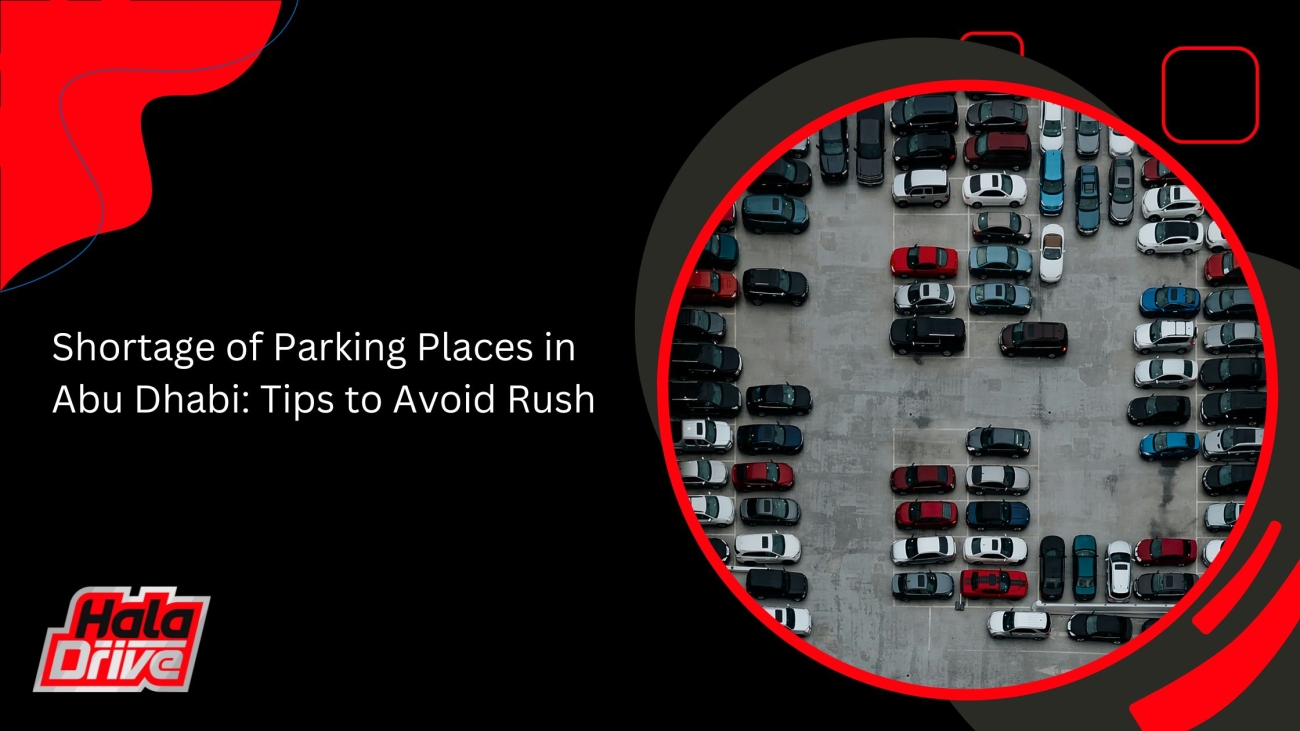


Top rated car rental in Dubai. Low prices, great deals, convenient pick-up, top-notch service!

Most of us have experienced the frustrating search for a vacant spot while driving through crowded parking places as time passes. People across the world feel irritated about the absence of available parking spots in shopping malls and offices and urban districts. Cities build parking buildings while parking shortages continue to occur.
The solution defies a quick response through blaming a lack of available parking places. Urban planning mistakes and poor management with human parking behavior patterns create the shortage of available parking places. The good news? The parking situation becomes more manageable with available solutions such as policy reforms and smart technological applications.
.jpg)
1. More Cars, Limited Space
The most obvious reason for parking shortages? There are more vehicles than ever competing for limited spots.
Rising car ownership: The rising domestic economies combined with increasing household incomes lead to increased car purchases across the population. Some cities have experienced such rapid increase in vehicle ownership that their infrastructure remains behind.
Urban density: Restricted land areas in high-density regions entail high costs together with restricted availability of free space. Cities must halt their constant addition of parking facilities because expanding these areas depletes space needed for essential urban needs including green areas and residential houses.
Poor turnover: Multiple vehicles station themselves in the same location for full days at workplace parks and transit facilities which depletes spot exchange rates and limits overall space availability.
In Dubai, car ownership exceeds 540 vehicles per 1,000 people—one of the highest rates globally. Without enough new parking, demand overwhelms supply.
2. Bad Parking Design & Management
Not all parking spaces are created equal. Poor design and management make shortages worse.
Wasted space: The combination of difficult layouts and too many turning radii together with confusing markings creates less parking places available to users.
No real-time tracking: Drivers struggle to locate vacant parking places because there is no clear indication making them drive around endlessly to waste time.
Underpriced parking: Cheap or free parking services enable extended parking duration in busy zones which results in transportation congestions and insufficient parking availability rates.
3. City Planning Mistakes
Many cities prioritize cars over people, leading to inefficient land use.
Outdated zoning laws: In some regions, developers are required to build large amounts of parking regardless of actual demand. This leads to massive lots that remain underutilized while other areas face scarcity.
Car-centric infrastructure: Urban structures that lack reliable public transportation and available biking facilities and walking routes compel citizens to drive their vehicles for all routes even when distances are short.
No shared-use policies: The separate parking lots for offices and retail areas remain empty during peak hours since both establishments operate at different customer volume periods. Shared-use agreements represent an excellent opportunity to boost operational effectiveness.
4. Human Behavior & Psychology
Drivers’ habits play a big role in parking scarcity.
“I’ll just be a minute” syndrome: People overstay in short-term zones, believing their quick errands justify bending time limits.
Spot hoarding: Fear of losing a spot discourages drivers from moving their cars, even if they don’t need to stay parked.
Convenience obsession: Everyone wants to park right at the entrance—even when there are open spots a short walk away.
.jpg)
1. Smart Parking Technology
Real-time tracking & automation can drastically improve parking efficiency.
Parking apps (e.g., RTA Dubai, ParkMobile): Help drivers find available spots in real-time, pay digitally, and even extend time remotely.
Sensors & digital signage: AI-powered sensors detect which spots are open and display real-time information on signs or mobile apps.
Automated parking towers: Vertical systems that store cars using mechanical lifts, maximizing space in compact areas.
2. Demand-Based Pricing
Cheap/free parking places leads to abusive behaviors. Smarter pricing creates turnover.
Peak-hour pricing: Charging more during high-demand times (e.g., weekdays, lunch hours) deters unnecessary long stays.
Off-peak discounts: Encourage drivers to park during slower periods, spreading demand more evenly.
Real-time rate adjustments: Prices change depending on availability, nudging drivers toward less crowded zones.
Example: Dubai’s paid parking zones have improved turnover in busy areas like Downtown and Marina.
3. Reduce Car Dependency
Fewer cars = fewer parking places demands. Cities must invest in alternatives.
Reliable public transit: Metro lines, buses, and trams that are fast, clean, and affordable reduce the incentive to drive.
Cycling & walking paths: Short trips don’t need a car—safe lanes and pedestrian-friendly infrastructure support healthier, eco-friendly mobility.
Car-sharing & ride-hailing: Services like Udrive, ekar, Uber, and Careem help reduce private vehicle ownership.
4. Policy & Design Reforms
Cities need to rethink outdated parking rules.
📜 Eliminate minimum parking requirements: Let developers decide how much parking is needed.
📜 Strict enforcement: Tow illegally parked cars to free up spaces.
📜 Shared parking agreements: Offices and malls share unused spots at night/weekends.
5. Innovative Parking Structures
Creative solutions can maximize limited space.
🅿 Underground/stacked parking: Saves valuable land.
🅿 Robotic valet systems: Cars are stored vertically in compact towers.
🅿 Park & Ride lots: Drivers leave cars at transit hubs, reducing downtown congestion.
Innovation Spotlight: Dubai’s automated parking at Silicon Oasis fits 3x more cars in the same space.
.jpg)
A reliable parking application serves as one of the top tools available to drivers in present times. The parking mobile applications Mawaqif and Darb provide simple parking search capabilities to all users throughout Abu Dhabi. The apps present current data regarding open parking locations that serve both standard and premium zones.
You can determine through the apps if parking places are free or require payment and pay digitally to prevent ticket and fine issues. Users should check for available parking places near their destination through the app before leaving their location. This short behavior saves both your time and prevents you from wasting it while driving in crowded locations.
When approaching crowded spots like shopping malls or tourist attractions you should select parking places in more distant areas than the entrance zones. The parking places which remain a short walk from your destination tend to be less full and simpler to find. Walking only a few steps for a short period of time will use less time than spending your time waiting for nearby parking spaces to become vacant.
The approach decreases both the mental burden and impatience that occur while competing with other drivers to claim a parking spot. The strategy proves useful when you park at a distance from the Corniche and Yas Island because these areas tend to be congested.
You should work together to limit roadway vehicles whereas carpooling stands as an uncomplicated solution for this purpose. Traveling with relatives or friends should involve using a single vehicle instead of multiple separate cars. The collective decision to share transportation saves resources related to traffic congestion and cuts down expenses associated with gasoline consumption. Abu Dhabi offers residents and visitors an efficient and secure as well as financially accessible public transit system. More than half of all tourist destinations in Abu Dhabi are serviced by buses while Uber and Careem operate as ride-sharing options throughout the city. Travellers should consider taking public transit before driving themselves because it provides better alternatives than parking and driving during short city visits.
Overall parking shortages will not dissipate immediately yet strategic technological innovations combined with improved policies together with behavioral changes will substantially improve the situation.
Cities need to abandon their focus on car-based development approaches although drivers should accept different ways to drive instead of solely driving alone.
A smarter approach to parking through sharing and efficiency elimination forms a future that benefits all users alike.